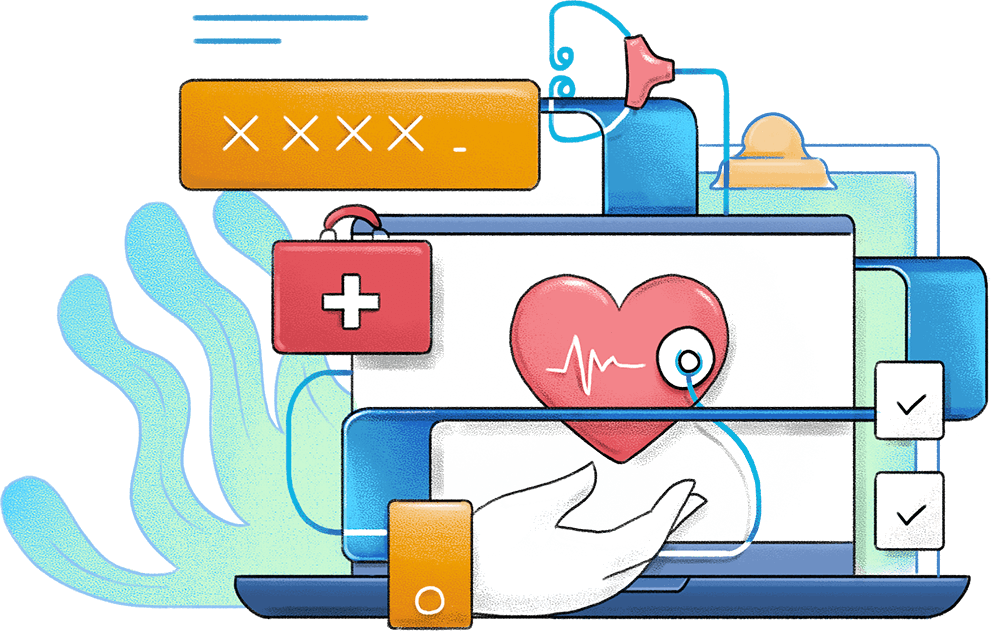
Procure actionable data across the healthcare sector
With a global net worth estimated to hit a whopping $10 trillion in 2022, the healthcare sector is one of the biggest and oldest sectors in the world. In such a vast industry involving patients, doctors, nurses, and healthcare workers, information management and number-crunching can easily turn into a hurdle. This is where surveys step in. Surveys can help authorities understand the needs of the hour, which keeps the system functioning smoothly and efficiently.
General healthcare
General healthcare deals with the physical and mental well-being of humans (and, in the case of animals, veterinary practices). Healthcare has numerous specialties, ranging from neurology to podiatry, as well as psychiatry and other mental healthcare options, and whether it’s a multi-specialty hospital or a clinic, data management is imperative. Surveys can help with data administration and management. For example, surveys can improve the doctor-patient relationship, thereby managing white coat syndrome in many people. They can be used to get feedback on room maintenance, canteen and parking facilities, building safety concerns, etc. Are your patients satisfied enough that they are willing to promote your treatment facilities? Find out with a Net Promoter Score (NPS) survey. Discharge surveys can be helpful to gain insights into the patient’s overall experience.


Healthcare technology
Innovative inventions in medical technology have revolutionized the healthcare industry. Early detection of cancer cells and artery blocks has turned once-fatal ailments into treatable conditions. However, these modern pieces of equipment require extensive maintenance and care, and without proper management, the costs can skyrocket. Surveys can assist administrators with information about the usability of equipment, technical faults, and areas for improvement.
Public safety and disease prevention
Understanding the lifestyle and habits of the public can help the government prevent diseases and be better prepared in case of a disease outbreak. Surveys can help in pinpointing the causes of certain illnesses, deciding what to spread awareness on and how to do so, and preventing roadblocks that keep people from leading a healthier lifestyle. A good qualitative research strategy can be helpful to gain insights on public health issues. They help the government and healthcare officials create better healthcare programs.


COVID-19
The healthcare industry faced one of its biggest challenges in recent history with the outbreak of the COVID-19 virus. Hospitals could not keep up with the rising number of cases, which resulted in chaos. At times like this, surveys proved to be of vital importance. They helped healthcare officials gauge requirements, better manage resources, and reduce waste. Contract tracing forms were useful in tracing and treating possible carriers, preventing further spread of the virus. Surveys filled by healthcare workers helped governments around the world understand the situation on the front line better and take necessary action. They also provided healthcare workers with the requisite data that helped them efficiently organize vaccination drives.
Telehealth and beyond
Providing healthcare to people in remote areas through telecommunication is called telehealth or telemedicine. Telemedicine was shown to be effective during the COVID-19 crisis when medical consultation was provided online, reducing physical contact. It can be useful for military personnel and certain emergencies. However, there are questions that authorities must answer before setting up telehealth services. What is the demographics of the people benefiting from these services? What are the barriers preventing the government from effectively setting up these services? Are the healthcare workers trained to provide telehealth services? Getting patients to rate their satisfaction will help you assess the success rate. Surveys help in finding answers to these questions and aids in planning, execution, and maintenance of telehealth services.

Zoho Survey and HIPAA Compliance
HIPAA (Health Insurance Portability and Accountability Act) compliance mandates the process of handling and storing patient data. A patient’s diagnosis reports and personal information are highly confidential, and keeping them protected is one of the major responsibilities of the hospital administration. Zoho Survey is HIPAA compliant, which means our privacy features protect sensitive data and personal health information (PHIs). This includes treatment preferences, financial transactions, and insurance information, and prevents this and other personal data from being disclosed without the patient’s consent.
